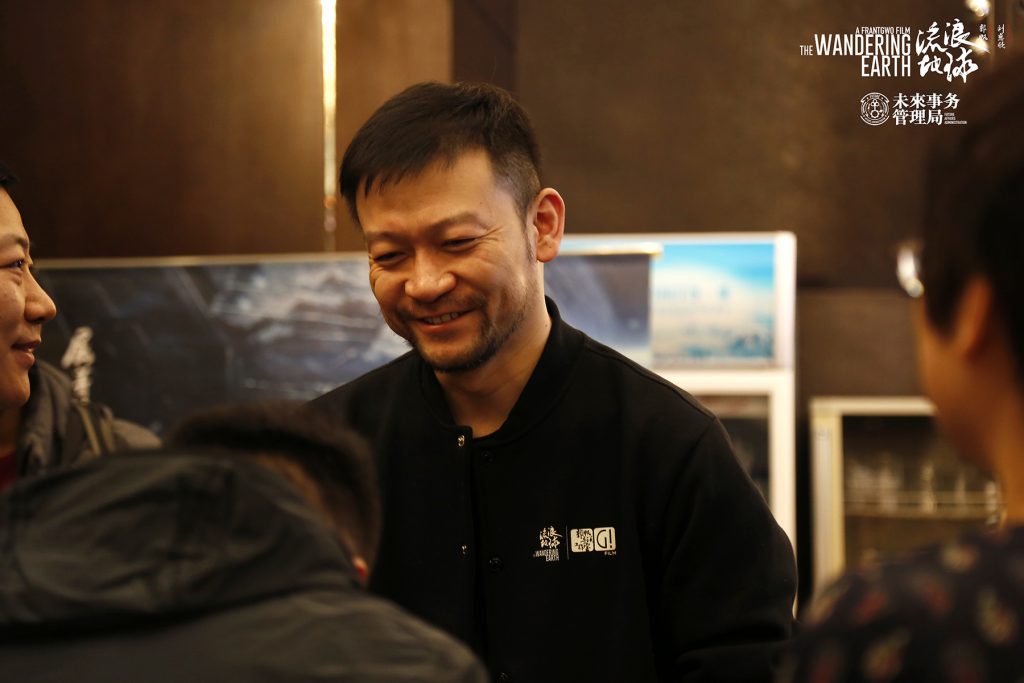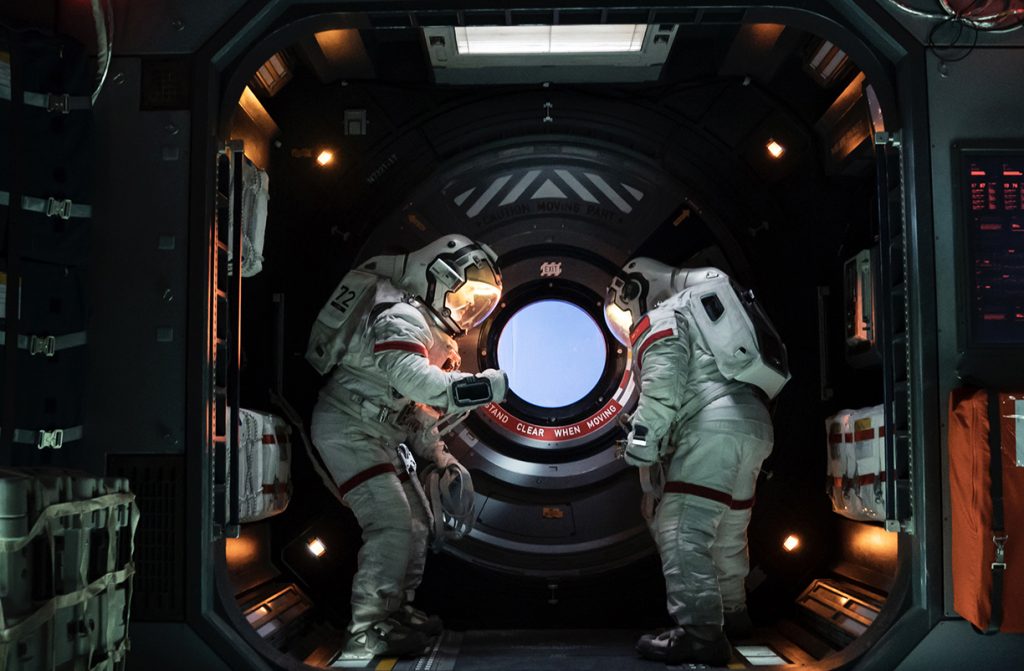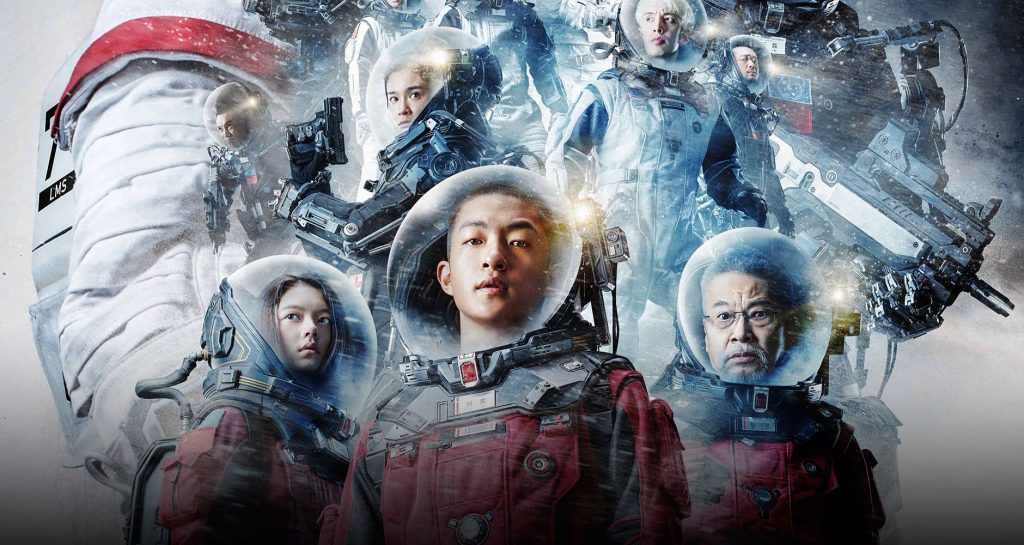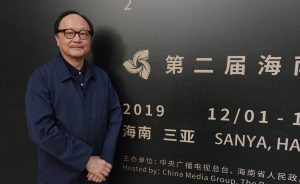Considered to be the first Chinese Sci-Fi blockbuster, The Wandering Earth has dominated headlines ever since becoming the 2nd highest-grossing film in China’s box office history. At a recent screening in IMAX headquarters in Los Angeles, CFI got a chance to sit down and chat with the director of The Wandering Earth, Frant Gwo.
CFI: What are some of your favorite Sci-Fi films that have influenced you while making The Wandering Earth?
Gwo: My favorites would be Stanley Kubrick’s 2001: A Space Odyssey, James Cameron’s Terminator 2, and Christopher Nolan’s Interstellar. I think these three films are masterpieces of their respective times.
CFI:Sci-Fi films originated in the west, and production studios, in Hollywood for example, are technically savvy and have abundant experience. During the production of The Wandering Earth, did you collaborate with any companies abroad? If so, how was the collaboration carried out?
Gwo:We did partner up with foreign companies, in principal photography and post-production. For practical effects, we worked with the best of the best, New Zealand’s Weta Workshop. For CGI, we worked with Germany’s Pixomondo and Korea’s Dexter Studios.
My production company acted as the main hub for management and task assignment. We had four companies work on the two thousand and three special effects shots within the film, 75% was done by our two Chinese SFX companies and 25% was assigned to the two companies mentioned above.
CFI: Many people speculate that China has now entered a full-blown “Sci-Fi Era.” In that sense, more and more Sci-Fi literary works are surfacing in China. How do you think Chinese filmmakers should prepare in terms of developing these materials into the film?
Gwo: I think whoever intends to explore Sci-Fi, must have a passion for it first.
In a larger context, I believe when China’s film industry is more industrialized and mature, like that of Hollywood’s, filmmakers would be able to conveniently access sufficient tools and resources better and focus on story more. Metaphorically, it’s like how you need a pen and paper to draw. In China, we’ve merely just found our pen and paper. So I think that China’s film industry ‘s main objective is conquering the path towards industrialization.Then we can better recreate our imaginations through film.
CFI: The Chinese government constantly advocates the promotion and preservation of traditional Chinese culture. How do you think Chinese filmmakers should incorporate that into futuristic and otherworldly stories?
Gwo: I wouldn’t necessarily say portraying tradition is the main objective, rather, finding a way to connect with the Chinese audience.
We just started making Sci-Fi films, so we can’t make one with a global perspective like Hollywood can yet. When first initiating this project, we aimed to primarily serve the Chinese audience. You have to understand that China didn’t go through the same industrialization western countries did, therefore Chinese people aren’t inherently familiar or intimate with robots and technology of the such. That’s why we sought out to present the genre and story in a way the Chinese audience could resonate with. To put into perspective, behind the futuristic and otherworldly theme, The Wandering Earth’s story focuses on the relationship between father and son, one that intrinsically has Chinese characteristics. This makes the cold and distant world feel more familiar and acceptable to a Chinese audience.
The kind of relationship dynamics between a Chinese father and son is very different from a, say, American father and son. In the future, we need to gradually learn and find the middle ground between different cultures, then strive to create something with a global perspective.
CFI: How did Wu Jing join in on the project?
Gwo: At the time, we really wanted an A-list actor to play the father role, but also understood that any A-lister would be hesitant due to the risks he’d be taking exploring Sci-Fi with us. Wu Jing chose to take a chance, even when he was at a really high point in his career having just received accolades for Wolf Warrior 2 and so much more. Back then he said to us:” Someone is bound to take this step. If we fail, we’re martyrs, if we succeed, we’re heroes.” So we really appreciate his trust and commitment to the project. This genre is new in China, and just like anything else, when something new emerges, people can be quite skeptical. At the beginning, outside observers wondered why we would want to do this, we even doubted ourselves. This kind of uncertainty has been present ever since the initiation of the project four years ago. But throughout the whole process, we gradually developed trust towards each other and in our project. Starting off with a team of two people, we ended up with seven thousand, all with a common purpose.
CFI: Are you working on any new projects at the moment? What can we look forward to next?
Gwo: I will continue to make Sci-Fi films and will also help support the younger generation of Chinese filmmakers in finding their way in this genre.
–Additional questions by Haisong Li and Chen Zeng.








